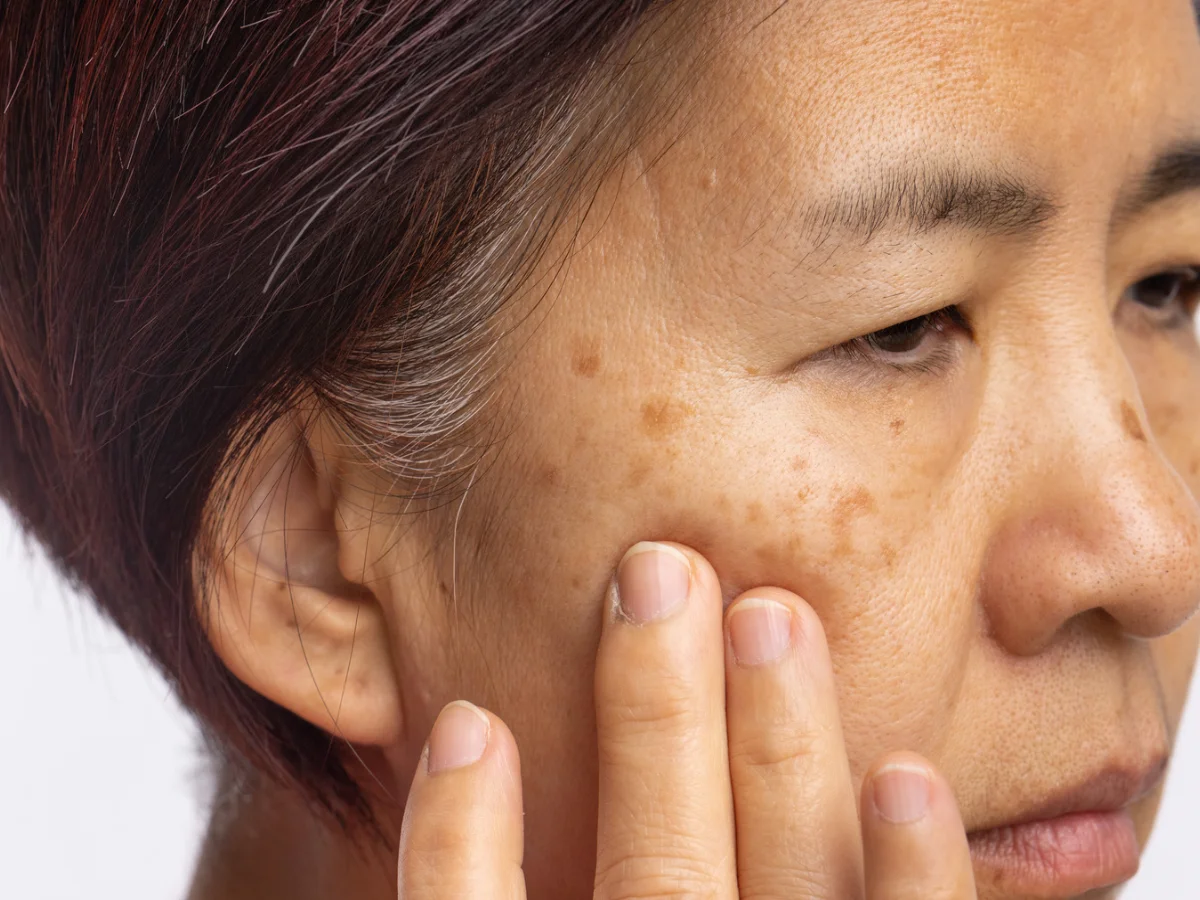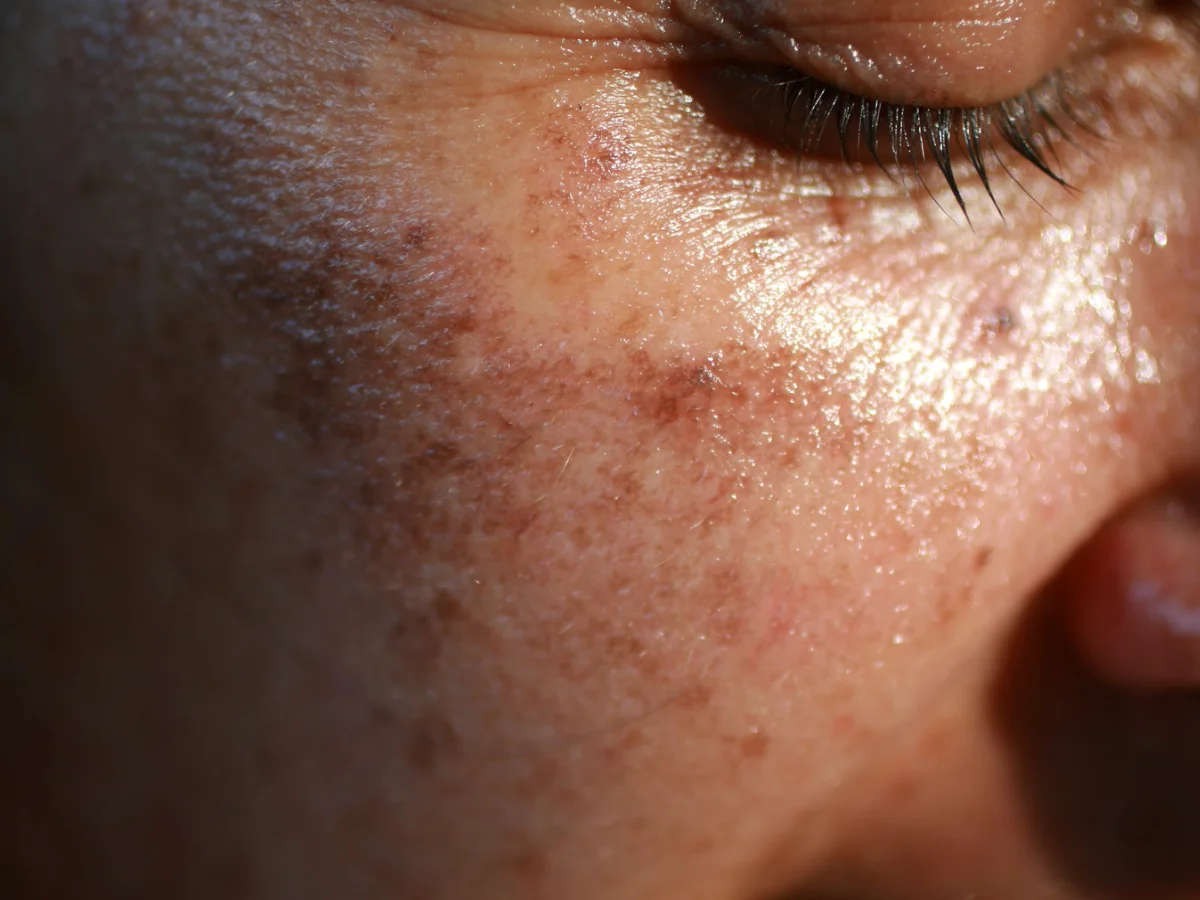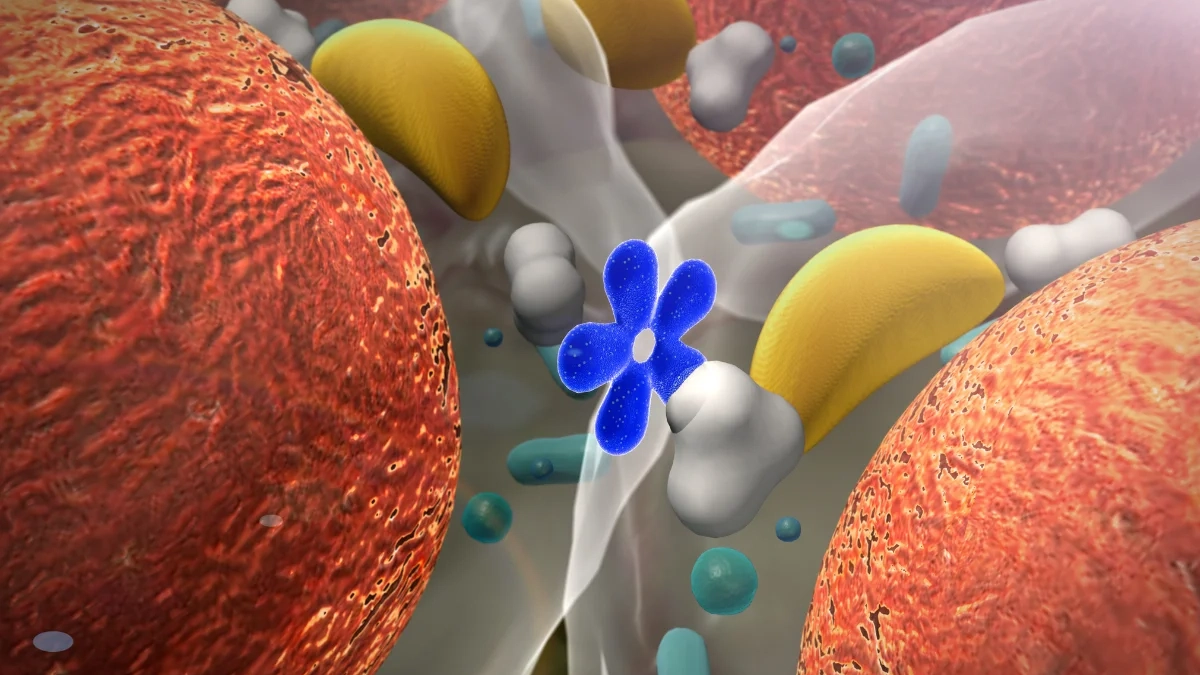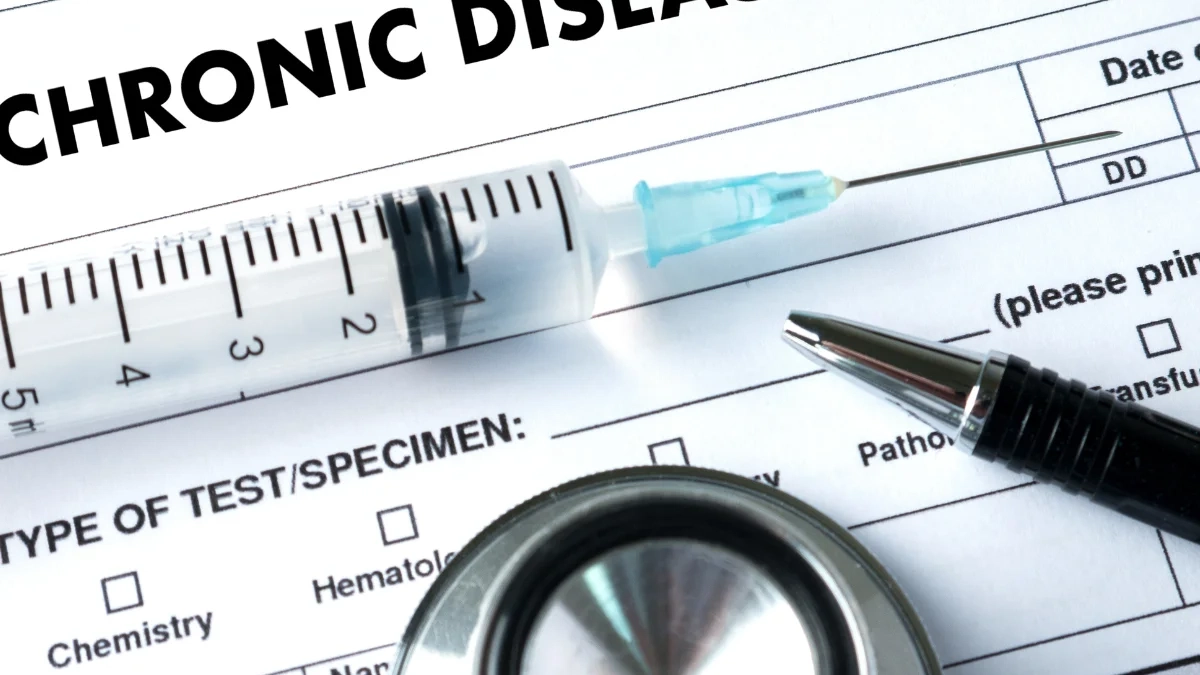SKIN CONCERNS
What is Pigmentation?
Pigmentation refers to the coloring of the skin, which is determined by the amount of melanin produced by melanocytes in the epidermis. Melanin is the pigment responsible for giving skin, hair, and eyes their color. Variations in skin color among individuals are primarily due to differences in melanin content and distribution.
skin concerns
What is Pigmentation?
Pigmentation refers to the coloring of the skin, which is determined by the amount of melanin produced by melanocytes in the epidermis. Melanin is the pigment responsible for giving skin, hair, and eyes their color. Variations in skin color among individuals are primarily due to differences in melanin content and distribution. Pigmentation disorders can lead to skin color changes, either causing skin to darken (hyperpigmentation) or lighten (hypopigmentation). Hyperpigmentation can occur for several reasons, including overexposure to the sun, inflammation, certain diseases, hormonal changes (as seen in conditions like melasma), and reactions to drugs. Common forms of hyperpigmentation include age spots, melasma, and post-inflammatory hyperpigmentation, which occurs after an injury or skin inflammation like acne. Hypopigmentation may result from genetic conditions, skin damage, burns, infections, or certain illnesses, leading to patches of skin that are lighter than the surrounding areas.


skin concerns
Are you affected?
Pigmentation issues can affect anyone, no matter their age or skin type, showing just how common this skin concern is. At FTT Skin Clinics, we're here to help everyone with their pigmentation, using the latest treatments and personalized care. We take a close look at what's causing your pigmentation, like sun damage, hormonal changes, or skin injuries, to make sure we're treating it right. Our clinic offers a range of treatments, from creams to light and laser therapies, all chosen to fit exactly what your skin needs. Plus, we don't just focus on treating pigmentation; we also teach you how to keep your skin looking its best and prevent new pigmentation spots from forming.
Causes
Pigmentation, or changes in skin color, can result from a variety of factors that impact the skin in distinct ways. Here’s a deeper look into the common causes of pigmentation and how they affect your skin:
Sun Exposure
Exposure to the sun’s ultraviolet (UV) rays is a primary cause of pigmentation. The UV radiation increases melanin production, the natural pigment that colors your skin. This often leads to the development of sunspots or age spots, which are more commonly observed in sun-exposed areas such as the face, hands, and arms. Frequent or prolonged sun exposure without adequate protection accelerates this type of pigmentation, underscoring the importance of using sunscreen to prevent these pigment changes.
Hormonal Changes
Hormonal fluctuations can significantly influence pigmentation, especially in conditions like melasma, also known as the “mask of pregnancy.” This type of pigmentation typically appears during pregnancy or with the use of contraceptive pills. The increased levels of estrogen and progesterone can stimulate excess melanin production, resulting in dark, irregular patches primarily on the face. Managing hormonal pigmentation may require treatments that address the hormonal imbalance in addition to topical treatments that lighten the pigmented areas.
Inflammation
Post-inflammatory hyperpigmentation (PIH) is another common cause of pigmentation that occurs following skin inflammation or injury. Conditions such as acne, eczema, burns, or cuts can lead to PIH, where the skin responds by producing more melanin in the affected areas, leading to darker patches. Treatment for PIH includes using anti-inflammatory skin care products and treatments that focus on reducing melanin production in the hyperpigmented spots.
Genetic Factors
Genetic predisposition plays a role in certain types of pigmentation such as freckles, which are small, concentrated spots of melanin. Freckles are a hereditary trait and are more prominent in individuals with lighter skin who are genetically predisposed to this type of pigmentation.
Certain Medications
Various medications can induce pigmentation as a side effect. Drugs such as certain chemotherapy agents, antimalarials, antiseizure medications, and some antibiotics can trigger increased melanin production, leading to noticeable skin pigmentation changes. In such cases, consultation with a healthcare provider is necessary to adjust the medication if possible and manage the pigmentation.




Symptom Check
Are you worried about visible pigmentation or interested in achieving a clearer, more even skin tone? Explore our detailed Pigmentation and Freckle Symptom Checklist below to identify common signs of pigmentation. Understanding these signs can help you determine the best treatment options available at our clinic:
Large Patches of Darkened Skin: Look for significant areas where your skin has darkened, which may indicate conditions such as melasma or hyperpigmentation. These patches often appear on areas exposed to the sun but can also develop in less exposed regions.
Spots or Patches: Notice if there are small, localized spots or patches on your skin. These could be freckles, sunspots, or age spots, typically resulting from sun exposure and genetic factors, reflecting concentrated areas of increased melanin.
Discoloration of Areas of the Skin: Any general discoloration or changes in the skin tone should be noted. This can range from slight to more marked changes and might be spread over various parts of the body.
Uneven Appearance of the Skin: An uneven skin tone can often precede the development of more distinct pigmented areas. Early signs include subtle variations in the skin’s natural color that may become more pronounced over time.
If you recognize one or more of these symptoms and are seeking solutions to reduce or eliminate pigmentation, check out the treatment options we offer. At our clinic, we specialize in advanced treatments designed to address and reduce pigmentation effectively, enhancing your skin’s natural beauty and health. Visit our website or contact us directly to learn more about how we can help you achieve a clearer and more even complexion.
Frequently Asked Questions
What is pigmentation?
Pigmentation refers to the coloring of the skin. It occurs when melanin, the natural pigment produced by cells in the skin, is produced in excess due to various factors, leading to dark spots, freckles, melasma, or an overall darker complexion.
What causes pigmentation?
Pigmentation can be caused by several factors, including excessive sun exposure, genetic predisposition, hormonal changes (such as those occurring during pregnancy or through the use of contraceptive pills), certain medications, skin inflammation or injury, and the natural aging process.
How can I prevent pigmentation?
Preventing pigmentation involves protecting your skin from the sun using broad-spectrum SPF sunscreen, wearing protective clothing, and avoiding peak sun exposure hours. Additionally, maintaining a healthy skincare routine, managing hormonal levels, and avoiding known triggers like certain medications can help reduce the risk of developing pigmentation.
What are the treatment options for pigmentation?
Treatment options vary depending on the type and severity of pigmentation but can include topical treatments (such as creams containing hydroquinone, retinoids, or vitamin C), chemical peels, laser therapy, and Intense Pulsed Light (IPL) treatments. It’s important to consult with a dermatologist to choose the treatment that’s right for your specific type of pigmentation.
Is pigmentation permanent?
While some types of pigmentation, like those caused by sun damage, can be lightened with treatment, others, such as those caused by melasma, can be more stubborn and recurrent. Ongoing treatment and preventive measures are often necessary to manage these types of pigmentation effectively.
Can pigmentation be cured naturally?
While natural remedies may help to mildly improve pigmentation, they are typically less effective than professional treatments. Ingredients like licorice extract, vitamin C, and niacinamide can help lighten pigmentation but are usually more beneficial when used in conjunction with medical treatments.
Does diet affect pigmentation?
Yes, diet can influence skin health. Foods rich in antioxidants, such as fruits and vegetables, can help prevent damage that leads to pigmentation. Conversely, certain foods might exacerbate pigmentation for some people, so it’s important to monitor how your diet affects your skin.
How long does it take to see results from pigmentation treatment?
The time it takes to see improvement from pigmentation treatments can vary widely depending on the treatment method and the severity of the pigmentation. Some treatments like laser therapy can show results in a few weeks, while topical treatments may take several months to yield noticeable changes.
Are there any side effects to pigmentation treatments?
Potential side effects depend on the treatment type. Common side effects can include temporary redness, peeling, or irritation. More intense treatments like laser can sometimes result in blistering or changes in skin color. Discussing potential risks with your dermatologist before starting treatment is crucial.
Can pigmentation return after treatment?
Yes, pigmentation can reoccur, especially if the underlying causes, such as sun exposure or hormonal fluctuations, are not managed. Ongoing maintenance treatments and diligent sun protection are essential to prevent pigmentation from returning after treatment.

Pigmentation Myths
Myth: Pigmentation only occurs due to sun exposure.
While sun exposure is a major cause of pigmentation, factors such as hormonal changes, genetics, inflammation, and certain medications can also lead to pigmentation issues. It’s important to consider all potential causes when addressing skin discoloration.
Myth: Pigmentation can be completely prevented.
Although you can take steps to minimize the risk, such as using sunscreen and avoiding direct sunlight, completely preventing pigmentation is not always possible due to factors like genetics and hormonal fluctuations that are beyond control.
Myth: Only people with lighter skin get pigmentation.
Pigmentation affects individuals of all skin tones. People with darker skin can experience hyperpigmentation or hypopigmentation, which may present differently but is equally concerning and treatable.
Myth: Over-the-counter products are enough to treat all pigmentation.
While over-the-counter products can be effective for mild pigmentation, more severe cases often require professional treatments such as chemical peels, laser therapy, or prescription medications. It’s best to consult with a dermatologist to determine the most appropriate treatment.
Myth: Tanning can help even out skin tone and reduce the appearance of pigmentation.
Tanning can actually worsen pigmentation by stimulating the melanocytes to produce more melanin, which can increase the contrast between normal and hyperpigmented skin.
Myth: Pigmentation always fades on its own.
Some forms of pigmentation, such as those caused by acne or mild injury, may fade over time. However, conditions like melasma or deep-set sun spots can persist and may even become permanent if not properly treated.
Myth: Laser treatment can remove pigmentation in one session.
Laser treatments can be very effective in reducing pigmentation, but they often require multiple sessions to achieve optimal results. The number of treatments depends on the type of pigmentation and the individual’s skin type.
Myth: Makeup worsens pigmentation.
Using non-comedogenic and hypoallergenic makeup formulated for sensitive skin does not worsen pigmentation. However, it’s important to thoroughly remove makeup to prevent clogged pores and skin irritation.
How Can We Help?
Laser IPL (Intense Pulsed Light) is a versatile, non-invasive treatment that uses broad-spectrum light to effectively target and reduce skin imperfections such as pigmentation, fine lines, and unwanted hair.
Laser IPL (Intense Pulsed Light) treatment offers a powerful solution for managing pigmentation at FTT Skin Clinics, harnessing the precision of light-based technology to enhance skin clarity and tone.
Targeted Pigmentation Reduction: IPL therapy uses specific wavelengths of light that are absorbed by the pigment (melanin) in the skin. This targeted approach causes the pigment to break down into smaller particles, which are then naturally cleared away by the body. It effectively diminishes the appearance of dark spots, sunspots, and other forms of pigmentation.
Collagen Stimulation: Beyond just addressing pigmentation, IPL promotes collagen production beneath the skin’s surface. The light energy stimulates the deeper layers of skin, encouraging new collagen formation which can improve skin texture and reduce the effects of aging, contributing to a smoother and more even skin tone.
Comprehensive and Customizable: At FTT Skin Clinics, each IPL session is customized to the specific needs of the patient’s skin type and pigmentation issues. Our skilled practitioners adjust the wavelength and intensity of the light to maximize results while ensuring the highest safety standards.
Minimal Downtime: One of the advantages of IPL treatment for pigmentation is its minimal downtime, allowing patients to return to their daily activities shortly after the procedure. It provides a non-invasive, effective option for those seeking to improve their skin’s appearance without the need for more intensive procedures.
By integrating IPL technology into our treatment offerings, FTT Skin Clinics provides a clinically proven method to reduce unwanted pigmentation and enhance overall skin health, helping patients achieve a clearer, more radiant complexion.
Treatment Time
Visible Results
Full Recovery
Duration
Sensitivity Time
Anaesthetic
Back to Work
No. of Treatments
Polynucleotides are a groundbreaking treatment that leverages natural DNA sequences to rejuvenate and restore skin, enhancing its elasticity, hydration, and overall youthful appearance.
Polynucleotides treatment is highly effective for those dealing with pigmentation, thanks to its advanced, regenerative properties that focus on cellular rejuvenation and skin repair. Here’s how polynucleotides are particularly well-suited for managing pigmentation at FTT Skin Clinics:
Deep Cellular Regeneration: Polynucleotides, derived from natural sources like salmon DNA, are known for their ability to stimulate the skin’s regenerative processes at a cellular level. This treatment enhances the natural repair mechanisms of the skin, which can help in reducing pigmentation by promoting the replacement of damaged, pigmented cells with new, healthy cells.
Hydration and Tissue Repair: Treatments with polynucleotides boost skin hydration significantly, which is crucial for maintaining the health of the skin barrier. This increased hydration helps to even out the skin tone and improves the overall texture of the skin, making it appear smoother and more uniform.
Anti-Inflammatory and Brightening Effects: Polynucleotides have anti-inflammatory properties that can reduce skin inflammation, a common precursor to pigmentation issues such as post-inflammatory hyperpigmentation. Moreover, by enhancing cellular health and turnover, polynucleotides indirectly contribute to the lightening of pigmented areas, leading to a more even complexion.
Personalized Treatment Plans: At FTT Skin Clinics, every polynucleotide treatment is tailored to the individual’s specific skin needs. Our comprehensive approach begins with a detailed skin assessment to determine the most effective treatment protocol based on the type and extent of pigmentation. This personalized strategy ensures optimal results, targeting pigmentation at its source and preventing future occurrences.
By utilizing polynucleotides for pigmentation, FTT Skin Clinics offers a cutting-edge solution that not only addresses the cosmetic aspects of skin discoloration but also improves the skin’s overall health and resilience. This approach ensures sustained results, leaving your skin looking brighter, clearer, and more rejuvenated.


Treatment Time
30 Minutes
Visible Results
3-4 Weeks
Full Recovery
Immediate
Duration
3-4 Months
Sensitivity Time
2 Hours
Anaesthetic
Not Avaliable
Back to Work
Immediate
No. of Treatments
Not Avaliable
Hydrofacial is a multi-step facial treatment that gently cleanses, exfoliates, extracts impurities, and hydrates the skin using water-based solutions and suction, leaving it refreshed, nourished, and glowing.
The HydraFacial treatment is also immensely beneficial for those battling pigmentation, thanks to its gentle, non-irritating method that focuses on hydration and skin rejuvenation. Here’s how the HydraFacial is perfectly suited for managing pigmentation:
Deep Cleansing and Gentle Exfoliation: Beginning with a lactic acid cleansing solution, the HydraFacial gently exfoliates the skin without harsh scrubbing, making it ideal for skin with pigmentation issues. This mild exfoliation is essential for removing dead skin cells and impurities, which helps lighten hyperpigmented spots and promotes a more even skin tone.
Hydration and Nourishment: Skin affected by pigmentation can also suffer from an imbalance that may lead to dryness or sensitivity. HydraFacial’s hydrating solutions deeply moisturize the skin, helping to restore balance and reduce the likelihood of irritation. Properly hydrated skin supports the reduction of pigmentation by enhancing the skin’s natural renewal process.
Brightening Effects: Specifically formulated to target pigmentation, the HydraFacial includes ingredients like vitamin C and other brightening agents that help reduce the visibility of dark spots and discoloration. These powerful antioxidants aid in evening out skin tone and revitalizing the skin’s appearance.
Personalized Treatment Plans: At FTT Skin Clinics, we value the importance of customization. Each HydraFacial session starts with a thorough skin assessment to ensure the treatment is perfectly adapted to address your specific pigmentation concerns. This personalized approach ensures that the HydraFacial not only rejuvenates and hydrates your skin but also effectively targets and lightens areas of pigmentation, resulting in a clearer, more radiant complexion.


Treatment Time
30-90 Minutes
Visible Results
Immediate
Full Recovery
Immediate
Duration
3 Months
Sensitivity Time
Not Avaliable
Anaesthetic
Not Avaliable
Back to Work
Immediate
No. of Treatments
4 Times a Year
At FTT Skin Clinics, our targeted treatment facials are specifically designed to address and reduce pigmentation issues such as sunspots, age spots, melasma, and uneven skin tone.
Using a combination of advanced techniques and high-quality products, these facials can significantly improve skin clarity and radiance. Here’s how our facials effectively treat pigmentation:
Customized Skincare Solutions:
Each facial begins with a comprehensive skin analysis to identify the type and severity of pigmentation. Our skincare experts tailor the treatment to your specific needs, selecting the most effective products and techniques to address your pigmentation concerns.
Deep Cleansing and Exfoliation:
The facials start with a deep cleansing process to remove impurities and prepare the skin for treatment. This is followed by gentle exfoliation, using enzymes or mild acids like glycolic or lactic acid, to slough off dead skin cells and reveal a brighter complexion. This step helps to remove the superficial pigmented cells and smooth the skin’s texture.
Brightening Agents:
Targeted facials for pigmentation often include the application of brightening agents such as vitamin C, kojic acid, and licorice root extract. These ingredients inhibit melanin production and help to lighten dark spots and even out skin tone. They work by reducing the activity of tyrosinase, an enzyme involved in melanin production, thus preventing the formation of new pigment.
Chemical Peels:
For more pronounced pigmentation, chemical peels might be incorporated into the facial. These peels use stronger acids, such as salicylic acid or TCA (trichloroacetic acid), to penetrate deeper into the skin and reduce pigmentation. Chemical peels accelerate the shedding of pigmented cells and stimulate the growth of new, healthier skin.
LED Light Therapy:
Some targeted facials include LED light therapy to enhance the treatment’s effectiveness. Specific wavelengths of light, particularly blue and green light, help to break down melanin clusters and reduce the appearance of pigmentation. LED therapy also promotes collagen production and skin healing, contributing to an overall improved skin tone.
Hydration and Protection:
Hydration is crucial for maintaining healthy skin and enhancing its ability to repair itself. Our facials include deeply hydrating masks and serums enriched with hyaluronic acid and other moisturizing agents. After treatment, a broad-spectrum sunscreen is applied to protect the skin from UV rays, which can exacerbate pigmentation.
Anti-inflammatory Effects:
Ingredients with anti-inflammatory properties, such as aloe vera, niacinamide, and chamomile, are used to soothe the skin and reduce any redness or irritation. This is especially important for sensitive skin that may be prone to inflammation and pigmentation.
Long-term Maintenance:
To sustain the benefits of the facial, our skincare experts provide a follow-up plan and recommend suitable at-home products. Regular use of brightening serums, sunscreen, and gentle exfoliants helps maintain the results and prevent new pigmentation from forming.
Regular Treatments:
For optimal results, a series of facials is recommended. Regular treatments, spaced a few weeks apart, help to gradually reduce pigmentation and improve skin clarity. Consistent care ensures that the skin remains healthy and resilient against environmental factors that contribute to pigmentation.
Holistic Approach:
At FTT Skin Clinics, we adopt a holistic approach to treating pigmentation. In addition to professional facials, we provide advice on lifestyle changes, such as diet and sun protection, to support skin health and enhance the effectiveness of the treatments.
Our targeted treatment facials at FTT Skin Clinics are a comprehensive solution for managing pigmentation issues. By combining advanced skincare techniques with high-quality products, we help you achieve a more even, radiant complexion, enhancing your natural beauty and boosting your confidence.


Treatment Time
30-90 Minutes
Visible Results
Immediate
Full Recovery
Immediate
Duration
3 Months
Sensitivity Time
Not Avaliable
Anaesthetic
Not Avaliable
Back to Work
Immediate
No. of Treatments
4 Times a Year
SKIN CONCERNS
At Home Pigmentation Care Tips
At FTT Skin Clinics, we empower you with practical tips to manage pigmentation and enhance the effectiveness of your skincare efforts. For those enduring the psychological impact of pigmentation, seeking support and adopting a positive skincare mindset are essential steps towards healing both skin and self-esteem.
Complementing our clinic treatments, we offer a wide range of skincare products designed to enhance and prolong the effects of your professional sessions. Our experts can recommend products tailored to your skin type, ensuring a seamless transition between clinic treatments and at-home care.
Your At-Home Skincare Routine for Pigmentation
We believe in empowering you with the knowledge and tools for effective at-home skincare. Our specialists provide guidance on incorporating at-home treatments into your routine, ensuring continuity between clinic visits.
At FTT Skin Clinics, our commitment extends beyond the clinic doors. We are dedicated to supporting you at every step, from in-depth skin analyses to personalized treatments and ongoing skincare guidance. Discover the transformative potential of our treatments and embrace the journey to clear, radiant, and healthy skin. Break free from the cycle of pigmentation with our evidence-based treatments and dedicated support, guiding you towards an even-toned, confident complexion.
Reflecting on personal experiences with pigmentation and treatment journeys can offer encouragement to others navigating the complexities of skin discoloration, fostering a supportive and understanding community. Feel free to share your pigmentation journey with us to have a positive impact!
Use a High SPF Sunscreen Daily:
Sun exposure can exacerbate pigmentation, making it crucial to use sunscreen with at least SPF 30 every day, even when it’s cloudy. This helps prevent existing pigmentation from darkening and new spots from forming. Consider using the FTT Pigment Perfector Range, which includes sun protection options suitable for pigmented skin.
Incorporate Vitamin C into Your Routine:
Vitamin C is a potent antioxidant that helps brighten the skin and reduce the appearance of dark spots. It also offers protection against sun damage, which can lead to pigmentation. A vitamin C serum each morning before sunscreen can provide a protective antioxidant layer.
Use Retinoids at Night:
Retinoids are effective in treating pigmentation by speeding up cell turnover, helping to fade dark spots and improve skin texture. The Obagi Nu-Derm Kit contains formulations with retinoids tailored to help with pigmentation while rejuvenating the skin.
Include a Gentle Exfoliator:
Exfoliating 2-3 times a week with a gentle exfoliant can help remove dead skin cells and allow active ingredients to penetrate more effectively. Be cautious not to over-exfoliate, as this can irritate the skin and worsen pigmentation.
Apply a Skin-Brightening Cream:
Products containing ingredients like hydroquinone, kojic acid, or niacinamide can help lighten hyperpigmentation. The Obagi Nu-Derm Kit and FTT Pigment Perfector Range offer options that include these effective brightening agents.
Stay Hydrated and Maintain a Healthy Diet:
Keeping your skin hydrated with a good moisturizer and drinking plenty of water can improve skin health, which is crucial for repairing pigmentation. Additionally, a diet rich in antioxidants, like fruits and vegetables, can protect the skin from damage that leads to pigmentation.
